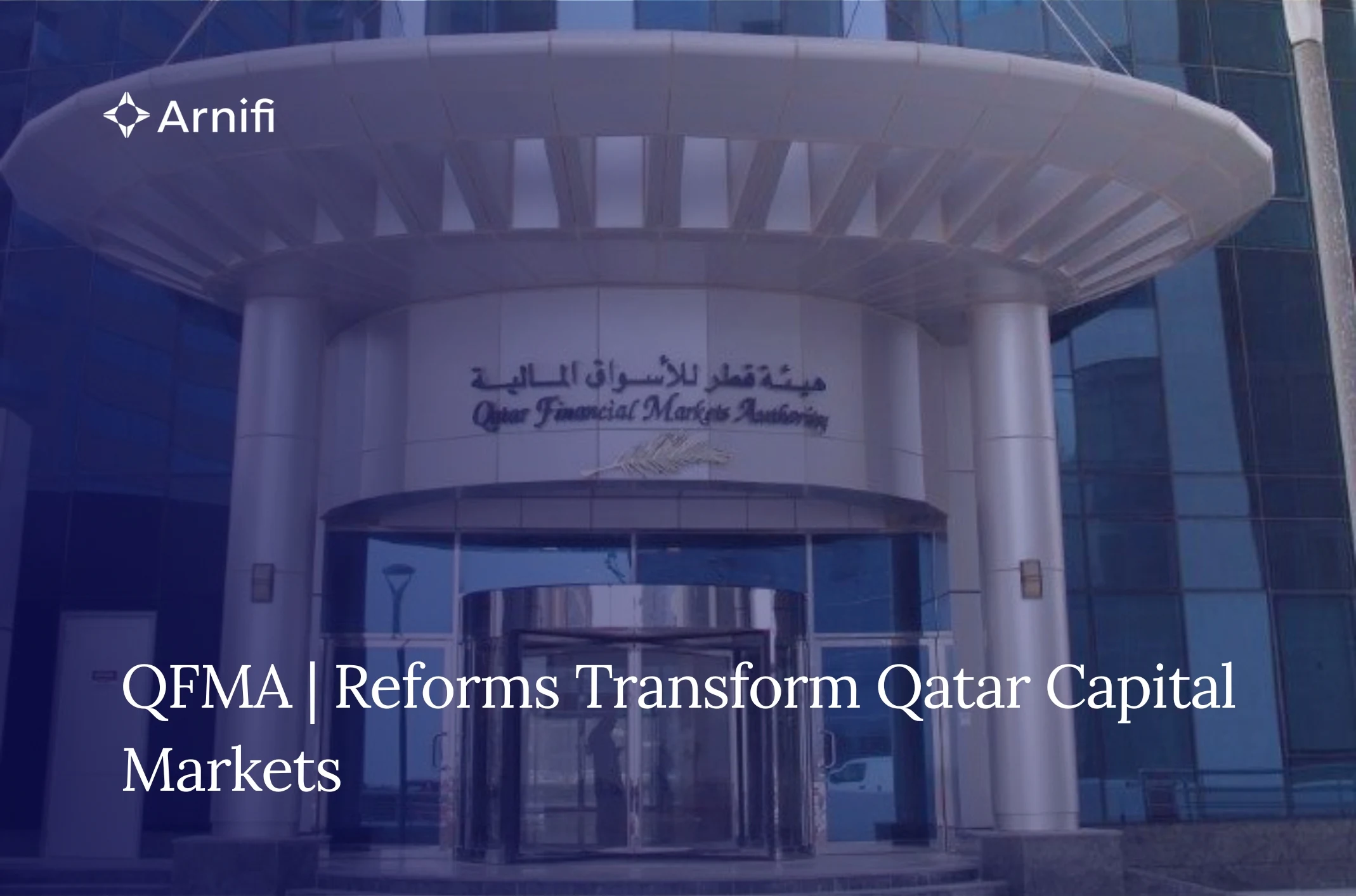Qatari Tax System | Tax rate for Business – 2025
by Shethana Sep 02, 2024  7 MIN READ
7 MIN READ

Overview
Curious about income tax, customs duties, and tax rates for business in Qatar? There’s no tax on personal income, gifts, inheritance, or value-added tax (VAT) while there are other types of taxes that you should pay while living and holding a business here. Qatar’s tax system is managed by the General Tax Authority (GTA), including other obligations and the tax year runs from January 1st to December 31st.
Taxes in Qatar are provincial which means you’re taxable if you make income here apart from a few expectations listed above. To give you a heads up there are certain products that are represented as harmful like tobacco, other narcotics, and psychotropic substances used for further processing to manufacture other pharmaceutical products, while even carbonated drinks these companies are forced to pay excise taxes and make it more expensive. While even carbonated drinks. Continue reading this article to get more insights about the Qatari Taxation System.
Personal Taxes in Qatar: What Foreigners Need to Know
The idea of living and working in a place with no taxes is very appealing. Qatar is a country that does not have personal income tax on salaries, wages, or bonuses. This rule applies to everyone, no matter where they come from or where they live. As a result, Qatar tax rates for foreigners are the same as the localites, people working in Qatar can keep the earnings with them. This increases their disposable income and helps them feel better about their financial situation. The lack of personal income tax is a big reason why Qatar attracts skilled workers from around the world.
Other Tax Considerations for Foreigners
There is no income tax in Qatar, foreigners need to understand other tax matters that may help with their finances. One important thing to know is double taxation. Qatar has taken steps to reduce this problem by creating tax treaties with over 70 countries. The GTA manages these agreements to help ensure that people and businesses are not taxed twice.
It’s also important to note that GCC nationals receive certain tax benefits that are not available to other foreign residents, especially when it comes to owning businesses in Qatar. It is a good idea to talk to a tax advisor who knows Qatari rules for complicated financial situations. This can help with compliance and ensure you get the most benefits.
Tax Obligations for Foreign Companies
Foreign companies working in Qatar follow the same income tax rates and laws as local ones. Qatar understands the need to stop double taxation and support international trade. To help with this, Qatar has set up many tax treaties with countries around the world.
These tax treaties are agreements that stop income earned by residents in one country from being taxed again in another. This gives businesses clear rules and lowers the tax costs for transactions between countries.
Qatar also takes a friendly approach to customs duties to become a trade center. A normal customs duty of 5% applies to most imported goods. But there are exemptions and lower rates for items related to infrastructure projects, manufacturing inputs, and essential goods. This helps create a good environment for trade.
Criteria for Businesses to Qualify for Tax Exemptions
Qatar wants to make sure that all businesses are treated fairly with their taxes. To do this, they have set some rules that companies must follow to get certain tax breaks. You can find these rules in the tax law and related guidelines. If a business is in Qatar’s Free Zones, such as the Qatar Financial Centre (QFC), it must keep clear and correct financial statements. These statements should follow international accounting standards. Approved auditors need to check these statements and send them to the right regulatory bodies.
Moreover, to get tax exemptions in Qatar, businesses may need to show how they help Qatar’s economy. This can mean creating jobs, bringing in new technology, or fitting into Qatar’s National Vision 2030.
Corporate Tax Regulations for Businesses in Qatar
Navigating a new tax system can feel overwhelming. However, Qatar makes it easier with simple corporate tax rules. These rules provide clear guidance for local and foreign businesses. The key feature of Qatar’s corporate tax system is its low flat tax rate. Along with the appealing tax rate, the tax law offers a complete guide for tax deductions. It also covers depreciation allowances and how to handle capital gains, losses, and dividends.
Understanding Qatar corporate income tax system is crucial for any business considering operations within the country. The tax rates are structured to promote specific industries while ensuring a stable revenue stream for the government. Qatar’s tax law differentiates between companies based on their ownership structure and industry.
Companies wholly owned by Qatari or GCC nationals benefit from tax exemptions, fostering a sense of economic inclusivity and encouraging local entrepreneurship. However, it’s important to note that companies engaged in the oil and gas sector, regardless of ownership, face a different tax structure.
How Qatar Attracts Foreign Investment with Tax Incentives
Qatar wants more foreign investment. It does this by offering good tax incentives and having a friendly business environment. The General Tax Authority (GTA) helps businesses understand tax rules and gives them advice.
A major reason foreign companies choose Qatar is the chance to avoid corporate taxes. The typical corporate tax rate is 10%. However, businesses in Qatar Free Zones can enjoy tax holidays that last up to 20 years. Also, foreign companies can lower their taxes by setting up a permanent establishment (PE) in Qatar. A PE is a fixed location where a foreign company runs its business in Qatar. Getting a tax card for the PE can help avoid certain withholding taxes on income.
Final Insights
Taxes in Qatar! It is one of the most important aspects that you should look into if you’re looking forward to starting a business here as this place is a great business environment with no taxes. This is a good chance for foreign investors and businesses. If you know the tax system and the incentives, you can make good choices to take advantage of this opportunity. By looking into tax exemptions in various sectors and knowing the rules to qualify, you can use the corporate tax rules to start a successful business in Qatar. Now You’re Ready to GO!
Follow Arnifi for more such insights about setting up business in UAE and other Middle Eastern companies.
Frequently Asked Questions
Is Qatar completely tax free for all businesses?
Qatar has a nice tax system, but it’s not tax-free for every business. Companies that are fully owned by Qatari or GCC nationals usually get tax breaks. However, foreign-owned companies and those in certain areas, like oil and gas, have to pay corporate income tax (CIT).
What are the primary tax free benefits or incentives for startups in Qatar?
Startups in Qatar can really benefit from tax breaks. This is especially true in Free Zones. Here, corporate tax exemptions can last up to 20 years. They also get to access funding opportunities through government programs.
How do VAT and customs duties work in Qatar?
VAT will be introduced, but it is not yet active in Qatar. The General Authority of Customs is in charge of customs duties. There is a standard rate of 5% on most imported goods. However, some goods may have exemptions and reductions.
About Arnifi
Arnifi is digital first Corporate service provider helping companies enter the Middle East region, starting with UAE and Saudi Arabia markets. Founded and backed by professionals from Amazon, Souq and other large companies operating in KSA – the team understands what it takes to succeed as a startup in both UAE and Saudi Arabian markets, apart from going through the setup process multiple times. Arnifi will provide a truly digital experience to entry and scale up of companies both UAE and Saudi Arabia. Discover tailored solutions and strategic partnerships that propel your business forward. Check out at – www.Arnifi.com for more details.
Also Read: Government Support Programs for Businesses in QFZ.
Also Read: Real Estate and Office Space Availability in Qatar Free Zones.
Top Qatar Packages

Related Articles
Top Qatar Packages



